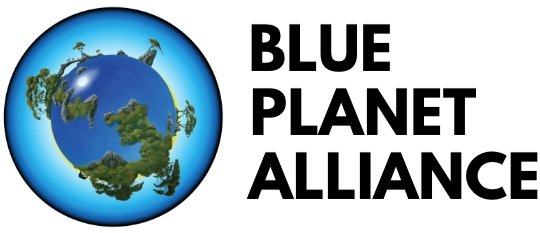NW Passage on Peace Boat
By Reene Smith, Blue Planet Alliance Global Ambassador from Grenada
My experience with the Youth for the SDGs program as a Blue Planet Alliance Global Ambassador onboard the Peace Boat was enriching, offering invaluable opportunities for cross-cultural connections, intergenerational learning, and collaboration with a diverse group of individuals committed to advancing the Sustainable Development Goals (SDGs). And coming from the Caribbean, it was a once-in-a-lifetime opportunity to explore ecosystems in the Pacific Northwest.
The Peace Boat excels in creating an environment for network building, which I greatly appreciated. The programs offshore were particularly insightful and informative, especially with Ocean Wise in Vancouver.
My participation aboard the Peace Boat was sponsored by Blue Planet Alliance and the International Conservation Corps (ICC) Group. I am truly honored to have received funding to embark on the Peace Boat Voyage. I am deeply thankful for this incredible opportunity, as it allowed me to connect with like-minded individuals, participate in meaningful citizen-science projects, and expand my understanding of global conservation efforts. The support from Blue Planet Alliance and ICC Group has been instrumental in my journey, and I am grateful for their commitment to fostering environmental stewardship.
I am deeply honored to continue my advocacy work toward a sustainable future, particularly for Small Island Developing States (SIDS).
As a Blue Planet Alliance Global Ambassador, my role is vital in advocating for a sustainable future and driving the global transition to 100% renewable energy. This position allows me to influence decision-makers, raise awareness, and mobilize communities to take meaningful action against climate change. I am proud to represent a powerful global movement that prioritizes environmental stewardship and social responsibility, for nations that are on the front lines of climate change and pushing for policies and initiatives that can lead to real, lasting change.
Renewable energy is essential for SIDS, being a native of a small island (Grenada) and experiencing the impacts of climate change firsthand. We are among the most vulnerable to the impacts of climate change. SIDS often rely heavily on imported fossil fuels, contributing to global carbon emissions. By transitioning to renewable energy sources like solar, wind, and geothermal, SIDS can reduce their carbon footprint, decrease energy costs, and build resilience against climate impacts such as rising sea levels and extreme weather events.
During the Peace Boat voyage, I had the opportunity to network both onboard and offshore with a variety of experts and organizations. I also gained firsthand insight into the nuclear bombings of Hiroshima and Nagasaki, as some survivors were present on the voyage and shared their experiences and activism work to raise awareness about the devastating impacts of nuclear weapons, as well as nuclear activities. Additionally, the Ukrainian Youth Ambassadors were on the voyage, and it was a great pleasure to network with them and learn firsthand how the current war in Ukraine has affected their lives, as well as local biodiversity and the environment. The Peace Boat voyage was indeed a valuable networking opportunity, allowing me to grow and continue advocating for the Sustainable Development Goals.
On July 8, 2024, we visited the Ocean Wise Pacific Science Enterprise Centre, gaining insights into their critical environmental work. At the Kelp Farm, Scot provided an overview of their Kelp Restoration Project, which addresses the impacts of climate change on kelp forests. These vital sea forests, which grow at a rate of up to 35 cm per day, are facing threats from rising water temperatures and ecological imbalances. The loss of sea otters, combined with an increase in sea urchins, has also led to significant declines in kelp populations. There is ongoing research into the potential use of kelp as a sustainable alternative for bioplastics, though this raises concerns about potential ecosystem impacts and data gaps in kelp production.
At the Plastic Lab, Stephanie detailed the extensive analysis of microplastics, focusing on their sources and impacts on marine ecosystems. The lab studies microplastics, particularly those less than 5mm, which predominantly originate from synthetic materials and wastewater-treatment facilities. Mussels are used as bioindicators to track plastic accumulation, revealing significant amounts of microfibers from clothing. The lab employs FTIR spectroscopy to identify plastic types and emphasizes reducing plastic use through practices such as gentle washing cycles and using lint catchers. Our visit concluded with a beach clean-up and water-quality testing, highlighting the ongoing efforts to combat plastic pollution and protect marine environments.
On July 16th, we visited the Alaska Sealife Center and attended an insightful presentation by the Center's staff. The presentation highlighted the history, mission, and ongoing efforts of the Sea Life Center, emphasizing its critical role in marine rehabilitation and conservation. Established as a direct consequence of the 1989 Exxon Valdez oil spill, the Center was initiated using settlement funds to address the extensive damage to 1,300 miles of coastline and aid in the rehabilitation of affected marine life. The Alaska Sea Life Center, the only facility in Alaska dedicated to marine rehabilitation, provides care and temporary homes for various species, including seabirds, otters, seals, and dolphins. Our visit underscored the importance of such dedicated facilities in mitigating the long-term impacts of environmental disasters and supporting marine ecosystems' health.






